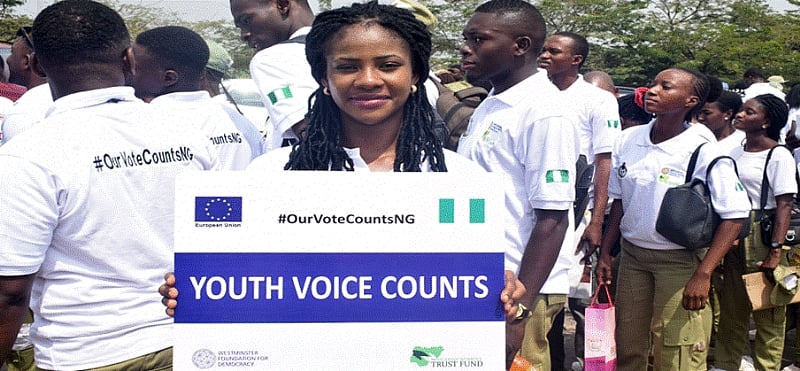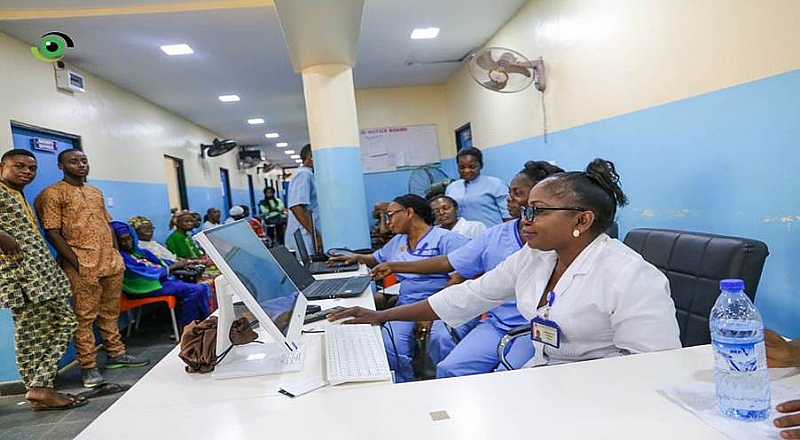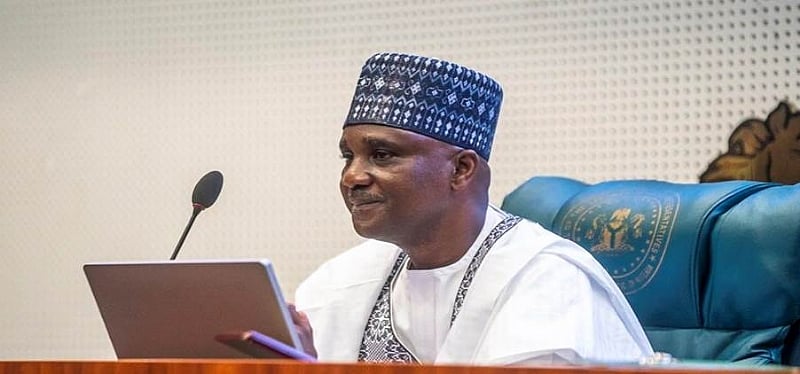In recent weeks, news has filtered out of Nigeria’s House of Representatives that a bill is under consideration which would make voting compulsory for all eligible citizens. Failure to comply, the bill proposes, would attract severe penalties, including possible jail time. Supporters of the bill argue that this is an essential measure to combat chronic voter apathy and strengthen democratic participation. They point to countries like Australia, where mandatory voting has long been enforced, and argue that Nigeria could learn from their example.
Yet, for many Nigerians, this proposal feels out of touch with the immediate realities of life in a country grappling with deep structural challenges. The bill, though perhaps well-intentioned on the surface, raises serious legal, ethical, and practical concerns. Of more importance is the fact that it fails to recognise and address the root causes of voter disengagement. Therefore, the Nigerian government, and particularly the National Assembly, would do better if they placed their energies and resources on more pressing and citizen-centred reforms before they can think of turning to punitive legislation about voter participation.
It is easy for government to criticise voter apathy. Low turnout in Nigeria’s elections, at times dipping below 35%, seems to reflect a troubling disengagement from the democratic process. However, a deeper look reveals that this apathy is not borne of laziness or civic indifference. It is instead a rational response by citizens who feel disenfranchised, disillusioned, and distrustful of an electoral process that is usually marred by irregularities, inefficiencies, and outright rigging.
Historically, elections in Nigeria have often been compromised. Allegations of vote-buying, ballot stuffing, voter intimidation, and manipulation of results have become commonplace over the years. Citizens have seen the will of the electorate subverted time and again, leaving many to believe that their votes do not count. In such an environment, choosing not to vote is not really an act of apathy, it is a form of protest, a political expression in itself. Therefore, making voting compulsory without first rebuilding trust in the system is putting the cart before the horse. It is to treat the symptom without curing the disease. To restore confidence in the electoral process, the government must first implement deep-rooted electoral reforms.
Opponents of the proposed bill have rightly argued that it infringes on constitutionally protected rights and democratic freedoms. In a democracy, the right to vote must also include the right not to vote. Compelling citizens to vote under threat of imprisonment transforms a democratic right into a state-imposed obligation, and that contradicts the very spirit of democratic participation.

International human rights provisions also uphold the voluntary nature of political participation. Countries that have made voting compulsory are often functioning within different political, historical, and cultural contexts from those of Nigeria. Imposing a similar framework on Nigeria without considering these differences is both reckless and potentially unlawful.
Moreover, the fear that such a law could be abused is not unfounded. In a political landscape where laws are often weaponized against dissenters, critics fear that the compulsory voting law could be used selectively to harass political opponents or target vulnerable communities. Without strong institutional safeguards, the risk of misuse looms large.
If the government is serious about democratic consolidation, it must start by addressing the fundamental issues that affect citizens’ everyday lives. These issues are numerous, well-documented, and they need urgent attention.
First is that the Independent National Electoral Commission (INEC) must be overhauled and empowered to conduct elections that are credible, free, and fair. The electoral process should be digitised where feasible, voter education intensified, and election security significantly improved. Election tribunals must also be independent, fast-tracked, and accessible. It is only when citizens are convinced that their votes truly count that they will feel a civic responsibility to participate in voting.
Second is the open secret that a bloated and extravagant political class has been imposed on Nigeria over so many years. The cost of maintaining political office holders – state and federal legislators, governors, ministers, and their aides – is unsustainable with so much debt hanging on the country’s neck. In a country with over 130 million people living in multidimensional poverty, it is morally indefensible to continue spending billions of naira on a few privileged families. Rationalising the structure of government, reducing salaries and allowances, and redirecting funds toward social infrastructure would resonate more powerfully with the electorate.

The state of healthcare in Nigeria is dire. Many hospitals lack basic necessities—clean water, electricity, medicines, and trained personnel. Patients die from treatable illnesses because of these infrastructural deficiencies. The legislators should be thinking more about investments that must be made in equipping public hospitals, training more healthcare professionals, and making healthcare accessible and affordable. The government must particularly invest in training more nurses and auxiliary staff, many of whom are young school leavers willing to serve, if given the opportunity.
Nigeria remains one of the world’s largest crude oil producers, yet it imports most of its refined petroleum products. This paradox persists because all four government-owned refineries are either underperforming or completely moribund. The implications are severe – constant fuel scarcity, high transportation costs, inflation, and untold hardship for ordinary Nigerians. Restoring full functionality to the refineries would significantly reduce the cost of fuel and stimulate the broader economy. The National Assembly should be considering these issues with the expediency they deserve.
Access to clean drinking water remains a luxury in many Nigerian urban centres. With the collapse of Water Boards in most states, citizens, especially tenants, are at the mercy of landlords who must drill boreholes for water. Most of these boreholes produce untreated water, which in many cases causes severe health problems, including eye infections that have led to blindness. Restoring and modernising the Water Boards to provide clean, treated, and reliable drinking water is a critical public health necessity and should be apriority to the National Assembly.
A National Assembly that is out of touch with the pressing needs of the people risks losing its credibility. When legislators prioritise controversial bills that threaten civil liberties over basic infrastructural reforms, it paints a picture of a government disconnected from its citizens. The danger lies not only in the content of such legislation but also in the message it sends, that governance is more about control than service.
The truth is that compulsory voting, in the absence of trust, will not enhance democracy. On the contrary, it risks breeding deeper resentment and disengagement. Nigerians need a government that listens, that responds to their needs, and one that earns their participation through good governance, not one that forces it through legal threats.
Australia has enforced compulsory voting since 1924 because its democratic institutions are robust, its electoral process transparent, and its citizen trust in governance relatively high. These conditions do not currently exist in Nigeria. Therefore, attempting to transplant such policies without addressing the underlying systemic differences is both naïve and dangerous. Other democracies have achieved high voter turnout through civic education, accessible voting processes, and inclusive governance, not through coercion. Nigeria must chart its own path, and it must be one that respects its unique socio-political realities.
This is not the time for punitive laws. It is a time for healing, reform and rebuilding trust. For now, the National Assembly should shelve the compulsory voting bill and redirect its attention to electoral system reform, cost-cutting governance structures, refinery rehabilitation, healthcare upgrades and clean water access.
Nigerians are not inherently apathetic. They are frustrated. They want to participate in a system that values their voices and reflects their choices. For that to happen, the system must first become credible, inclusive, and transparent. Democracy is not strengthened by threats and punishments. It is deepened by engagement, transparency, and trust. The current focus on compulsory voting misses the mark. Rather than criminalising political disengagement, the Nigerian government must focus on restoring the conditions that make political participation meaningful and attractive.
There is a long list of critical reforms Nigerians yearn for and they include honest elections, lower cost of governance, functioning refineries, quality healthcare, and clean water. These are not luxuries; they are essentials. The National Assembly must wake up to the realities on ground. Nigerians do not need more laws telling them what they must do. They need leadership that shows them what their government can do for them. That is how you win the people’s trust. That is how you rebuild a democracy. Let the voice of reason prevail. Let the focus shift from compulsion to service. Nigeria’s democratic future may well depend on it.


